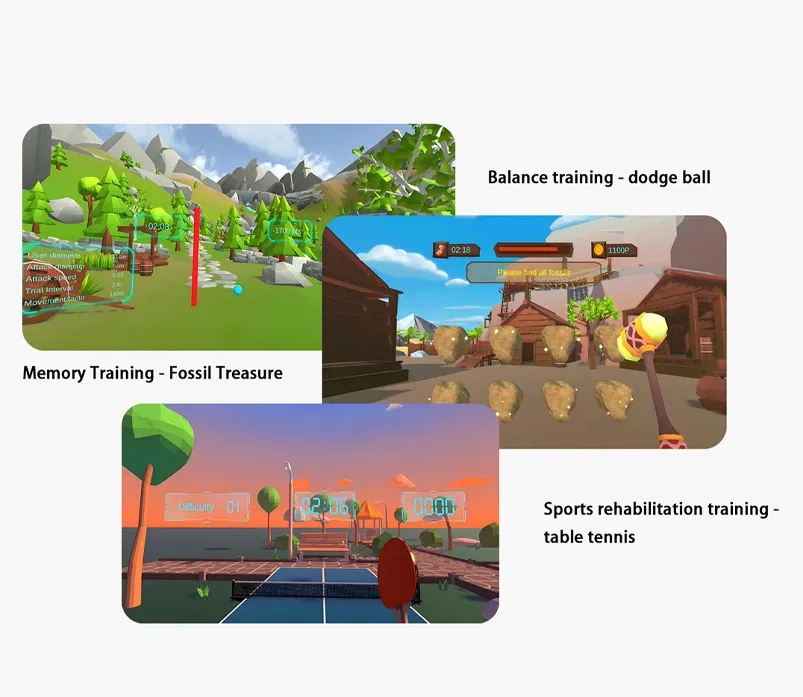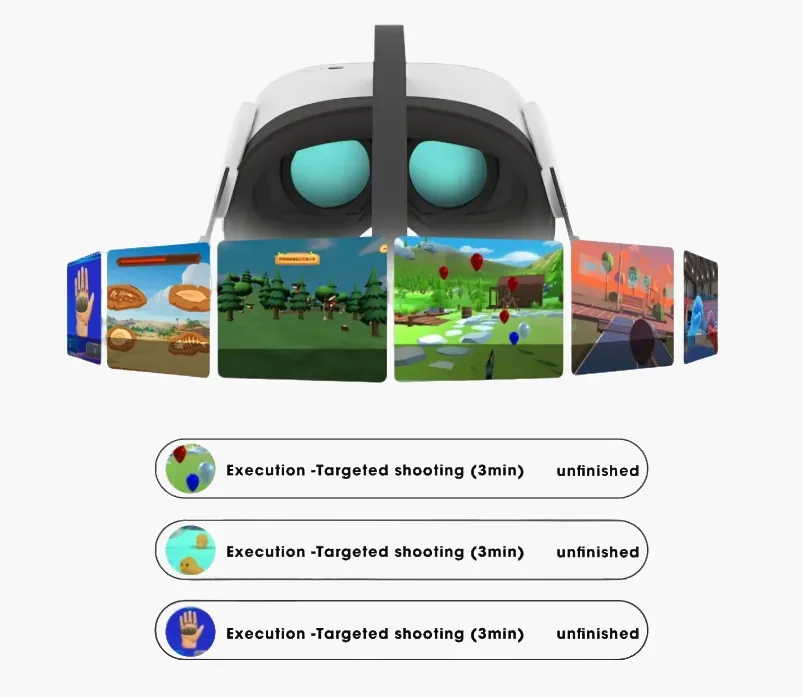
Developing explorations reveals that augmented reality platforms strategy can significantly refine the welfare of participants managing cognitive impairments. By transporting them to comforting backgrounds, VR provides a innovative possibility for mind energizing, mood regulation, and interpersonal communication. Many inquiries have demonstrated that VR therapy can lessen turmoil, apprehension, and depression in dementia users while also raising their remembrance, awareness, and linguistic talents.
- VR permits patients with dementia to relive precious moments through interactive illustrations.
- Furthermore, it can furnish a reliable and facilitative space for community involvement, promoting a impression of relationship and affiliation.
- Specialists maintain that VR therapy has the likelihood to transform dementia treatment by contributing new and creative paths to confront the elaborate obstacles faced by individuals struggling against this malady.
Advanced Digital Care for Cognitive Support in Alzheimer's
Developing technological solutions are exhibiting benefits in the province of neural stimulation for people affected by Alzheimer syndrome. These systems exploit computing power to boost brain performance and possibly retard the advancement of the disease. Game-based practices, personalized guidance, and neurological training are some representations of approaches being studied in this changing domain. While analyses are continuing, digital therapeutics enable a complementary pathway for advancing the welfare of those affected by Alzheimer's ailment.Addressing Alzheimer's with Virtual Territory Journeys
In relation to users managing Alzheimer's condition, the progressive decline of recollection and cognitive abilities can significantly reduce their aptitude to communicate with the external setting. This weakening condition often leads in seclusion, agitation, and a lowered self-perception. Contemporary progresses in virtual reality technology show a revolutionary means to counteract these challenges by formulating immersive realities that can stimulate the brain and restore cognitive function.
Virtual scenario worlds created specifically for Alzheimer's sufferers can take them in familiar environments, such as their childhood home or a chosen recreational spot, eliciting positive memories and decreasing anxiety. Through interactive missions, these virtual environments can also challenge cognitive abilities like cognition, concentration, and judgment.
The prospects of virtual reality in Alzheimer's healing are extensive. Early evaluations have proved beneficial results, with cases indicating improvements in cognitive capacity, mood, and overall quality of life. As this technique moves forward, it holds the key to transforming the way we approach Alzheimer's disease, presenting a new pathway for care and empowerment.
Digital Memory Therapy for Alzheimer's Disease
Reminiscence therapy is an acknowledged technique used to advance cognitive function and mental health in individuals with Alzheimer's disease. This conventional form of therapy involves inviting patients to narrate past experiences, often through narratives. However, a groundbreaking approach is emerging: VR-mediated reminiscence therapy.
This immersive system utilizes virtual reality headsets to shift patients in lifelike environments that invoke memories from their past. By immersing in these virtual scenes, individuals with Alzheimer's can interact with their past in a influential way.
Virtual Reality as a Memory and Cognitive Booster in Dementia
Virtual reality (VR) is emerging as a novel tool in the fight against dementia, granting trailblazing ways to enhance memory and cognition. By constructing immersive scenarios, VR can empower individuals with dementia access memories, associate in meaningful activities, and enhance cognitive functions. Studies have demonstrated that VR interventions can bring about significant improvements in memory recall, attention, and geographical awareness. Moreover, VR provides a comfortable and favorable space for individuals with dementia to explore, reducing feelings of isolation and anxiety.
- In addition, VR can be configured to individual needs and preferences, facilitating heightened levels of participation.
- Acknowledging the prospects of VR, progressive research is needed to fully understand its long-term benefits in dementia care.
Renewing Memories, Enhancing Relationships: VR for Alzheimer's Social Health
Simulated simulated realms is emerging as a revolutionary platform in the sphere of memory loss diseases. By generating compelling and responsive spaces, VR has the power to spark memories, promote social interaction, and improve the overall quality of life for users living with Alzheimer's. Prominently an influential aspects of VR is its ability to transport users to vintage spots and experiences from their past. Whether it's a stroll in a childhood home or a model of a beloved holiday, these virtual travels can summon happy memories and solidify cognitive function. Furthermore, VR can promote social interaction by bringing together individuals with others who share similar traits. This can be particularly useful for people with Alzheimer's who may grapple with traditional social communication. By hosting a cognitive function reheablation safe and captivating virtual space, VR can mitigate feelings of isolation and loneliness, which are common among participants suffering from Alzheimer's. Overall, VR holds immense potential for remodeling the lives of clients with Alzheimer's by reawakening memories, renewing connections, and augmenting their quality of life. As technology proceeds to mature, we can expect even more groundbreaking applications of VR in the field of dementia care.Employing Cognitive Training: Exploiting VR as Cognitive Aid in Alzheimer's
Computer-simulated worlds is rapidly emerging as a revolutionary tool in the realm of cognitive training, particularly for patients affected by Alzheimer's disease. By immersing patients in interactive and engaging virtual environments, VR-based interventions can boost cognitive functions such as memory, attention, and problem-solving. These games usually incorporate elements of storytelling, exploration, and social interaction, making the training process more enjoyable. Studies have shown that VR-based cognitive training can lead to substantial improvements in cognitive performance, theoretically delaying the progression of Alzheimer's symptoms. Moreover, VR provides a safe and controlled environment for patients to practice new skills and improve their confidence.
- Game-enhanced procedures in VR training can make it highly engaging and attractive for clients with brain function issues.
- VR simulations can offer lifelike scenarios that provoke and motivate cognitive functions.
- Personalized VR experiences can cater to custom requirements and techniques.
Exploring VR's Advantages in Dementia Support
Absorbing simulated worlds offer a unique and encouraging avenue for subjects undergoing dementia. These technologies can generate familiar environments, allowing those affected by cognitive decline to experience cherished memories and build a sense of contentment. By reducing the problems of dementia, VR environments have the possibility to advance quality of life for both clients and their helpers.
- Evaluations indicate that VR uses can significantly impact cognitive function, psychological well-being, and even neuromuscular abilities in individuals with dementia.
- Moreover, VR provides a safe and structured environment for interaction, reducing the risk of trauma.
- Furthermore, VR can enhance social links by allowing individuals with dementia to collaborate in cyber activities with others.
Game-Changing VR Solutions for Early Alzheimer's Assessment
Alzheimer disorder poses a difficult problem, often going undetected in its early stages. Nevertheless, virtual reality (VR) is showing promise as a revolutionary tool for primary detection. Through immersive virtual worlds, VR can monitor cognitive function in ways that traditional methods cannot cope to. This ability allows for timely intervention strategies, potentially impeding disease progression and optimizing the quality of life for users with Alzheimer's.
- VR-based assessments can test memory, attention, and spatial awareness in a safe and controlled setting.
- Personalized VR experiences can help patients interact in activities that stimulate cognitive function.
- Interactive virtual contexts enable socialization and interaction for Alzheimer's patients.
Using Virtual Reality to Improve Linkages and Involvement in Dementia
{In the realm of dementia care, innovative technologies are emerging to supplement the lives of users with memory loss diseases. Virtual reality (VR) is one such tool that holds immense opportunity for reducing isolation through VR-mediated social and communicative support. By creating immersive and engaging virtual environments, VR can activate cognitive function, reduce behavioral issues, and ultimately improve the overall well-being of dementia patients.
VR experiences designed for neurodegenerative disease management can range from reflection therapy sessions that fade patients back into earlier life scenes, to interactive games that promote social interaction and cognitive practice. Furthermore, VR has the power to connect users experiencing dementia with caregivers, regardless of physical separation, fostering a sense of togetherness.
- VR can support in reducing agitation and anxiety by providing a calming and distracting environment.
- Evaluations have shown that VR interventions can lead to improvements in cognitive function, mood, and social interaction in subjects coping with dementia.
- As technology continues to progress, we can expect even more innovative and efficient
